Understanding Fatty Liver Disease
Understand Fatty Liver Disease, its causes, symptoms, risk factors, and treatment options. Learn how lifestyle changes can help manage and prevent it.

Written by Dr. Rohinipriyanka Pondugula
Reviewed by Dr. Shaik Abdul Kalam MD (Physician)
Last updated on 13th Jan, 2026

Introduction
Fatty liver disease is a surprisingly common condition, often flying under the radar until it becomes a serious health concern. Essentially, it occurs when excess fat builds up in liver cells. While a healthy liver contains a small amount of fat, it becomes a problem when fat constitutes 5% or more of the organ's weight. Often, there are no obvious symptoms, earning it the nickname a "silent" liver disease. However, if left unaddressed, it can progress to inflammation, scarring (cirrhosis), and even liver failure. The good news? In its early stages, fatty liver disease is often reversible. This comprehensive guide will walk you through everything you need to know, from identifying subtle symptoms of fatty liver disease to understanding the causes and, most importantly, the actionable steps you can take to reverse it and reclaim your liver health.
What Exactly is Fatty Liver Disease?
Your liver is your body's primary filtration system, processing everything you eat, drink, and breathe. Fatty liver disease, or hepatic steatosis, disrupts this vital function by infiltrating liver cells with fat droplets. Think of it like foie gras; the liver becomes engorged with fat, impairing its ability to perform critical jobs like detoxifying the blood, producing bile for digestion, and regulating blood sugar.
The Two Main Types: NAFLD and AFLD
There are two primary types, distinguished by their cause:
1. Non-alcoholic Fatty Liver Disease (NAFLD): This is the most common form, unrelated to heavy alcohol use. It's closely linked to metabolic issues like insulin resistance and obesity.
2. Alcoholic Fatty Liver Disease (AFLD): This is caused by consuming large amounts of alcohol. The liver prioritises breaking down alcohol over its other functions, leading to a buildup of fat.
Why a Fatty Liver is a Problem
Initially, a simple fatty liver might not cause immediate harm. The real danger lies in the inflammation it can trigger. For some, this fat accumulation leads to a more severe form called non-alcoholic steatohepatitis (NASH), characterised by liver inflammation and cell damage. This inflammation, over years or decades, can lead to fibrosis (scarring) and eventually cirrhosis, where widespread scarring permanently impairs liver function.
Consult a Gastroenterologist for the best advice
Recognizing the Signs: Symptoms of Fatty Liver Disease
Here are the symptoms of fatty liver disease, including its silent phase and key warning signs:
The Silent Phase: Often No Symptoms
One of the most challenging aspects of this disease is its stealthy nature. In the early stages of simple fatty liver and even
early NASH, most people experience no symptoms at all. This is why it's often discovered incidentally during routine blood tests or imaging for other issues.
When Symptoms Appear: Warning Signs to Watch For
As the condition progresses to advanced inflammation or cirrhosis, symptoms may begin to manifest. It's crucial to consult a doctor if you notice:
- Persistent fatigue and weakness
- Pain or discomfort in the upper right abdomen
- Unexplained weight loss
- A general feeling of being unwell
- In advanced cirrhosis: yellowing of the skin and eyes (jaundice), swelling in the legs and abdomen, and spider-like blood vessels on the skin.
If you are experiencing persistent abdominal discomfort or unexplained fatigue, it's important to consult a doctor online with Apollo24|7 for a preliminary evaluation and to determine if further tests are needed.
How is Fatty Liver Disease Diagnosed?
Since symptoms are often absent, diagnosis typically relies on a combination of methods.
Common Blood Tests and What They Mean
A routine blood test showing elevated liver enzymes (ALT and AST) is often the first red flag. While not definitive for fatty liver, it signals that the liver is under stress and warrants further investigation.
Imaging Techniques: Ultrasound, FibroScan, and MRI
An abdominal ultrasound is the most common initial imaging test. It can often detect excess fat in the liver. More advanced techniques like FibroScan are excellent non-invasive tools that can measure both liver fat content and stiffness (an indicator of fibrosis or scarring), providing a clearer picture of the disease's stage without a biopsy.
The Gold Standard: Liver Biopsy
In cases where the diagnosis is unclear or advanced scarring is suspected, a liver biopsy may be recommended. A small sample of liver tissue is extracted and analyzed to confirm the diagnosis, assess the amount of inflammation and scar tissue, and rule out other causes. Apollo24|7 offers convenient home collection for tests like liver function panels, making the initial diagnostic steps easier.
Get Your Health Assessed
Can You Reverse Fatty Liver Disease? Effective Treatment Strategies
The most powerful treatment for fatty liver disease isn't a pill; it's lifestyle modification. The goal is to reduce liver fat and inflammation.
The Cornerstone of Treatment: Weight Loss and Diet
Weight loss is the single most effective intervention. Studies show that losing 5-10% of your total body weight can significantly reduce liver fat. A 7-10% weight loss can even improve inflammation and fibrosis.
Foods to Embrace: The Mediterranean Diet Approach
Focus on a whole-foods, plant-based diet rich in:
- Fibre: Fruits, vegetables, whole grains, and legumes.
- Healthy Fats: Avocados, nuts, seeds, and olive oil.
- Lean Protein: Fish (especially those high in omega-3s like salmon), poultry, and plant-based proteins.
Foods to Avoid: Sugar, Refined Carbs, and Bad Fats
Eliminate or drastically reduce:
- Added Sugars and High-Fructose Corn Syrup: Found in sodas, juices, pastries, and candy. This is public enemy #1 for your liver.
- Refined Carbohydrates: White bread, white rice, pasta, and other processed grains.
- Saturated and Trans Fats: Fried foods, red meat, and processed snacks.
The Role of Exercise and Physical Activity
Aim for at least 150 minutes of moderate-intensity aerobic exercise (like brisk walking, cycling) plus 2-3 sessions of strength training per week. Exercise improves insulin sensitivity and helps burn triglycerides for fuel, reducing liver fat directly.
Conclusion
Fatty liver disease is a widespread and growing health concern, directly linked to modern lifestyle factors. While its silent nature can be alarming, understanding its causes and symptoms empowers you to take action. The central message is one of hope: this condition is largely preventable and, in its early stages, reversible. By committing to sustainable lifestyle changes, prioritising a whole-foods diet, incorporating regular physical activity, and managing your weight, you can directly combat liver fat and inflammation. Remember, your liver has a remarkable ability to heal itself when given the right support. If you have risk factors or are concerned about your liver health, don't wait for symptoms to appear. Take the first step today by speaking with a healthcare professional to get evaluated and create a personalised plan for a healthier liver and a healthier you.
Consult a Gastroenterologist for the best advice
Consult a Gastroenterologist for the best advice

Dr. Chethan T L
General Physician/ Internal Medicine Specialist
5 Years • MBBS, MD, DNB (General Medicine)
Bengaluru
Apollo Medical Center, Marathahalli, Bengaluru

Dr. Jatin Yegurla
Gastroenterology/gi Medicine Specialist
11 Years • MD (PGI), DM (AIIMS Delhi), FAGIE (AIIMS Delhi), ESEGH (UK), Gold Medalist
Hyderabad
Apollo Hospitals Jubilee Hills, Hyderabad
(675+ Patients)
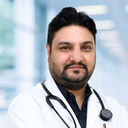
Dr. Amit Pandita
Gastroenterology/gi Medicine Specialist
10 Years • MBBS. MD (INTERNAL MEDICINE) DrNB (GASTROENTEROLOGY AND HEPATOLOGY)
Delhi
Apollo Hospitals Indraprastha, Delhi

Dr Piyush Vishwakarma
Gastroenterology/gi Medicine Specialist
11 Years • MBBS, MD, DrNB,
Delhi
Apollo Hospitals Indraprastha, Delhi
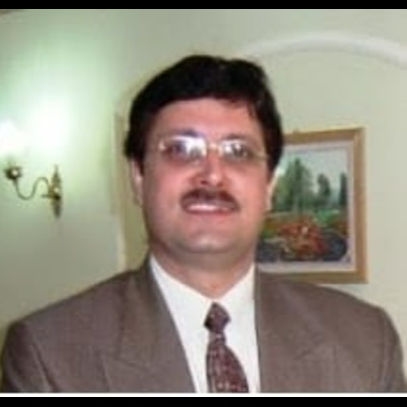
Dr. Sunil Kaul
General Surgeon
30 Years • MBBS, MS, FICS, FIMSA, FMAS
Delhi
Apollo Hospitals Indraprastha, Delhi
(25+ Patients)
Consult a Gastroenterologist for the best advice

Dr. Chethan T L
General Physician/ Internal Medicine Specialist
5 Years • MBBS, MD, DNB (General Medicine)
Bengaluru
Apollo Medical Center, Marathahalli, Bengaluru

Dr. Jatin Yegurla
Gastroenterology/gi Medicine Specialist
11 Years • MD (PGI), DM (AIIMS Delhi), FAGIE (AIIMS Delhi), ESEGH (UK), Gold Medalist
Hyderabad
Apollo Hospitals Jubilee Hills, Hyderabad
(675+ Patients)

Dr. Amit Pandita
Gastroenterology/gi Medicine Specialist
10 Years • MBBS. MD (INTERNAL MEDICINE) DrNB (GASTROENTEROLOGY AND HEPATOLOGY)
Delhi
Apollo Hospitals Indraprastha, Delhi

Dr Piyush Vishwakarma
Gastroenterology/gi Medicine Specialist
11 Years • MBBS, MD, DrNB,
Delhi
Apollo Hospitals Indraprastha, Delhi

Dr. Sunil Kaul
General Surgeon
30 Years • MBBS, MS, FICS, FIMSA, FMAS
Delhi
Apollo Hospitals Indraprastha, Delhi
(25+ Patients)
More articles from Fatty Liver
Frequently Asked Questions
1. Can you die from fatty liver disease?
Yes, if it progresses to advanced cirrhosis or liver cancer, it can be life-threatening. However, the early and moderate stages are reversible and manageable, making early detection and intervention critical.
2. What is the best drink for fatty liver?
Water is the best choice. Coffee (black, without sugar) has also been shown in numerous studies to be beneficial for liver health, as it may help lower liver inflammation and slow fibrosis. Avoid sugary sodas and fruit juices entirely.
3. How long does it take to reverse a fatty liver?
The timeline varies based on the individual and the amount of weight lost. With consistent lifestyle changes, significant reduction in liver fat can be seen in as little as 6 months to a year, especially with a 5-10% reduction in body weight.
4. Are there any medications to treat fatty liver?
Currently, there are no FDA-approved medications specifically for NAFLD or NASH. Treatment focuses on lifestyle changes and managing contributing conditions like diabetes, high cholesterol, and obesity with medication. Several drugs are in clinical trials.
5. Is fatty liver disease contagious?
No, fatty liver disease is not contagious. It is a metabolic condition influenced by genetics, diet, and lifestyle, and cannot be spread from person to person.

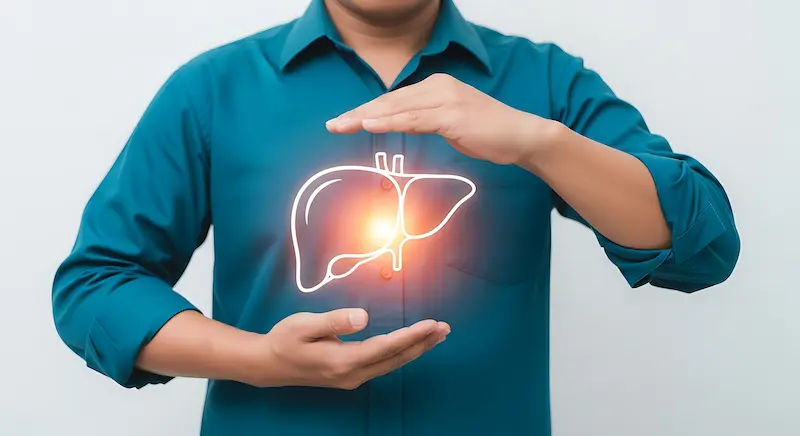
_2.webp)
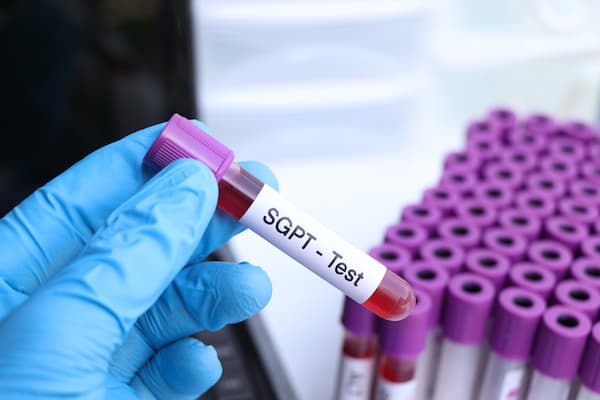
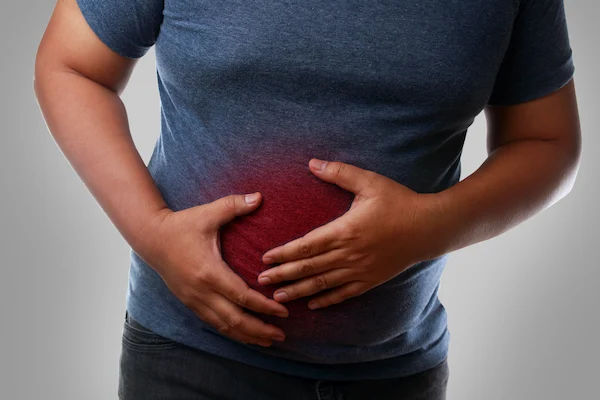
_4.webp)